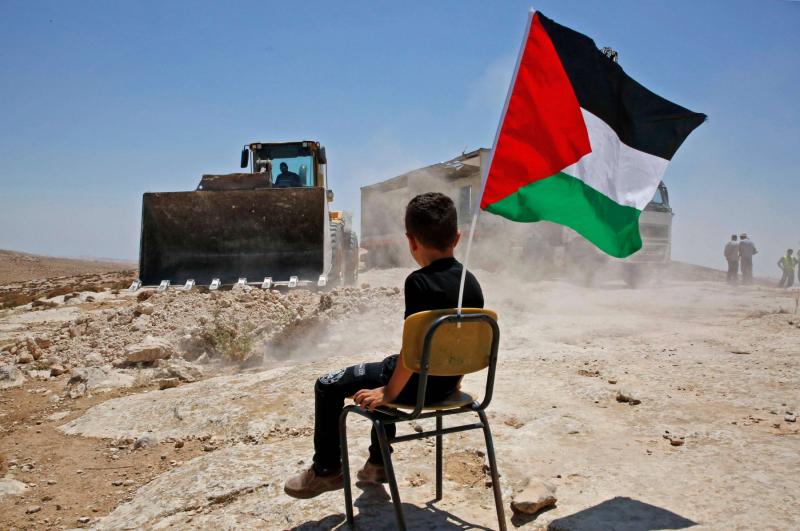Peace vs Justice. What comes first?

Resilience in the face of loss. A Palestinian boy sits on a chair as Israeli bulldozers demolish a school site in the village of Yatta, south of Hebron in 2018 (AFP)
At a dinner party the other day, one of the older ladies recalled a slogan from her time at university: No peace without justice. “I still believe that,” she said, looking fiercely around the table.
Her anger was directed not at us but at those faceless, nameless sorts who discriminate — against people of colour, against women, against Palestinians and so on. This woman, we all felt it so clearly, would march in protest against inequity and unfairness of any sort.
But her inoffensive offensive against the unfair raised a storm. Another guest demanded how it would be possible ever to have peace if violence were used to demand and force justice. He cited Northern Ireland as an example of having a peace process before justice.
Everyone nodded sagely and the older lady looked horror-struck. “I was certainly not advocating bombing or anything,” she protested, slightly pink-cheeked.
The conversation moved on but some of us returned to the issue later, in the context of the Palestinians and the injustice they have long suffered.
How best might they have prosecuted their case? Might their failure to have their own Gandhi be the reason they remain without a sovereign state nor any strategic plan to ensure they achieve it.
Someone mentioned Mubarak Awad, the “Palestinian Gandhi”, who was deported by Israel and settled in the US in the late 1970s.
“Israel didn’t deport Yasser Arafat,” said our interlocutor, “but Awad, who might have built up moral authority for the Palestinian cause.”
There is much truth in the assertion. Imagine if the Palestinian had embarked on decades of Gandhian non-violence, rather than “days of rage”. Imagine, if they had conducted a campaign of civil disobedience, silent marches, candlelit vigils and sit-ins.
Israel’s campaign of violence and discrimination would have become steadily less believable and the “both sides are at fault” argument would no longer fly.
Peace must be a precondition for justice, I’m afraid.

